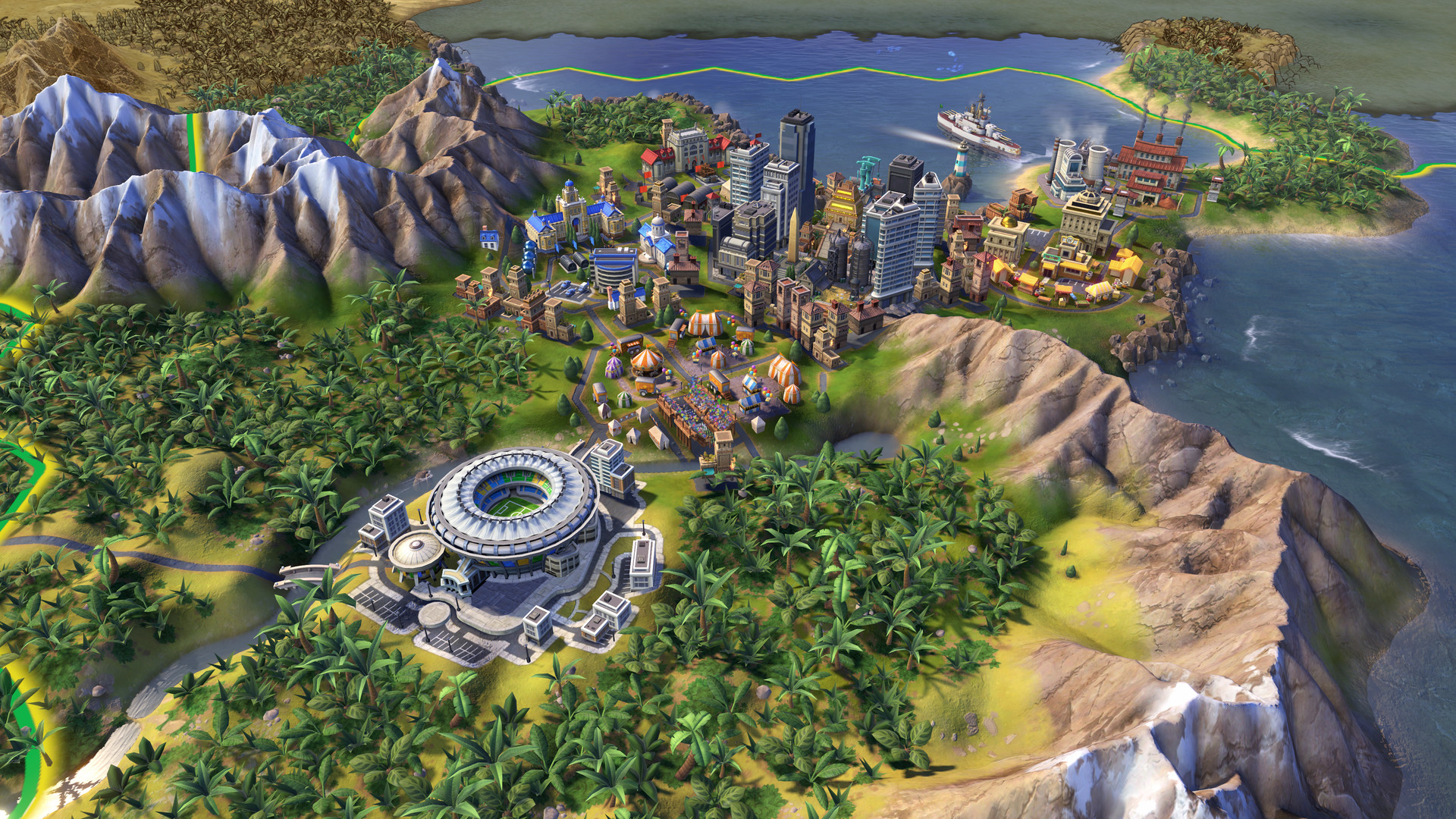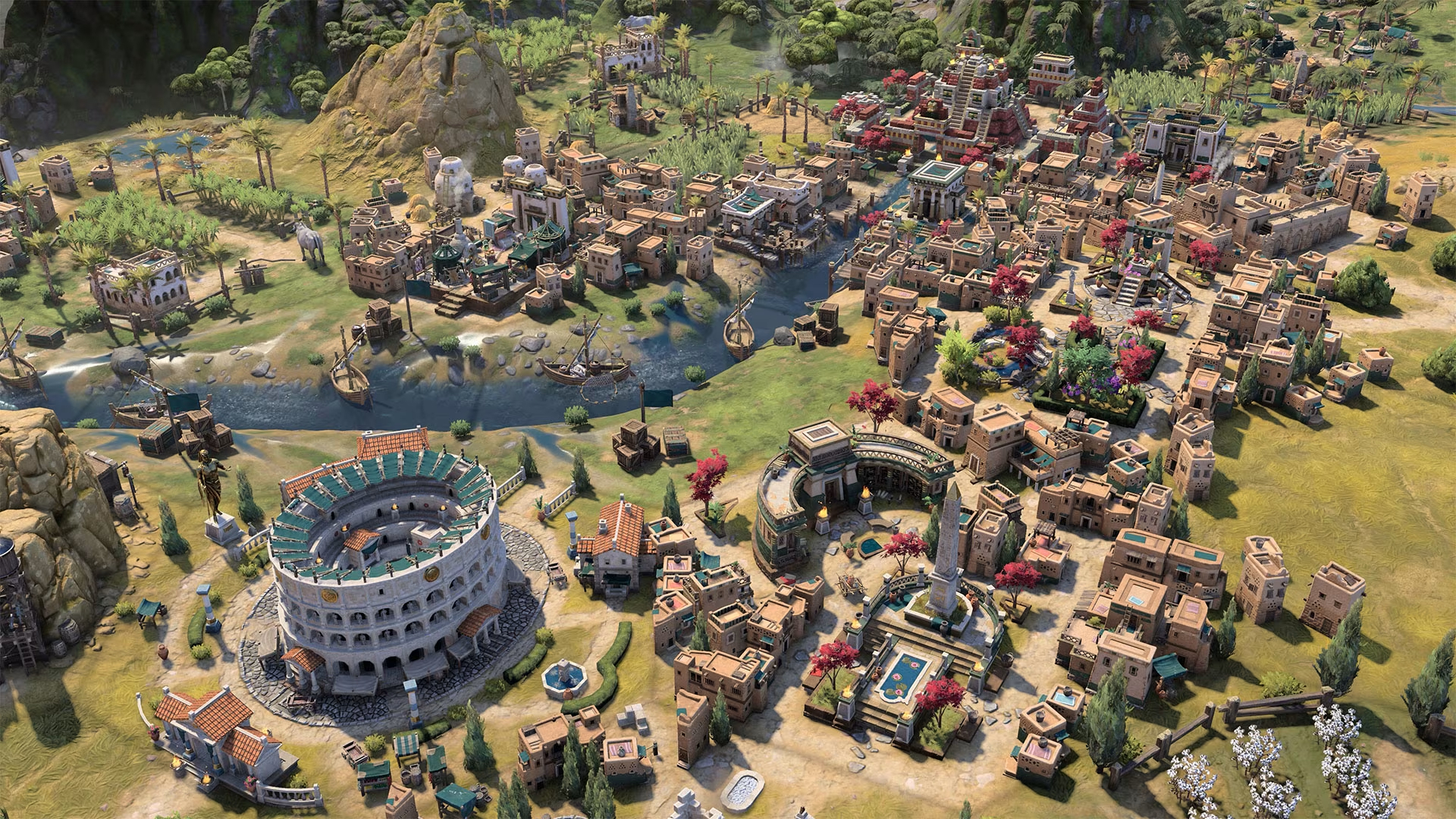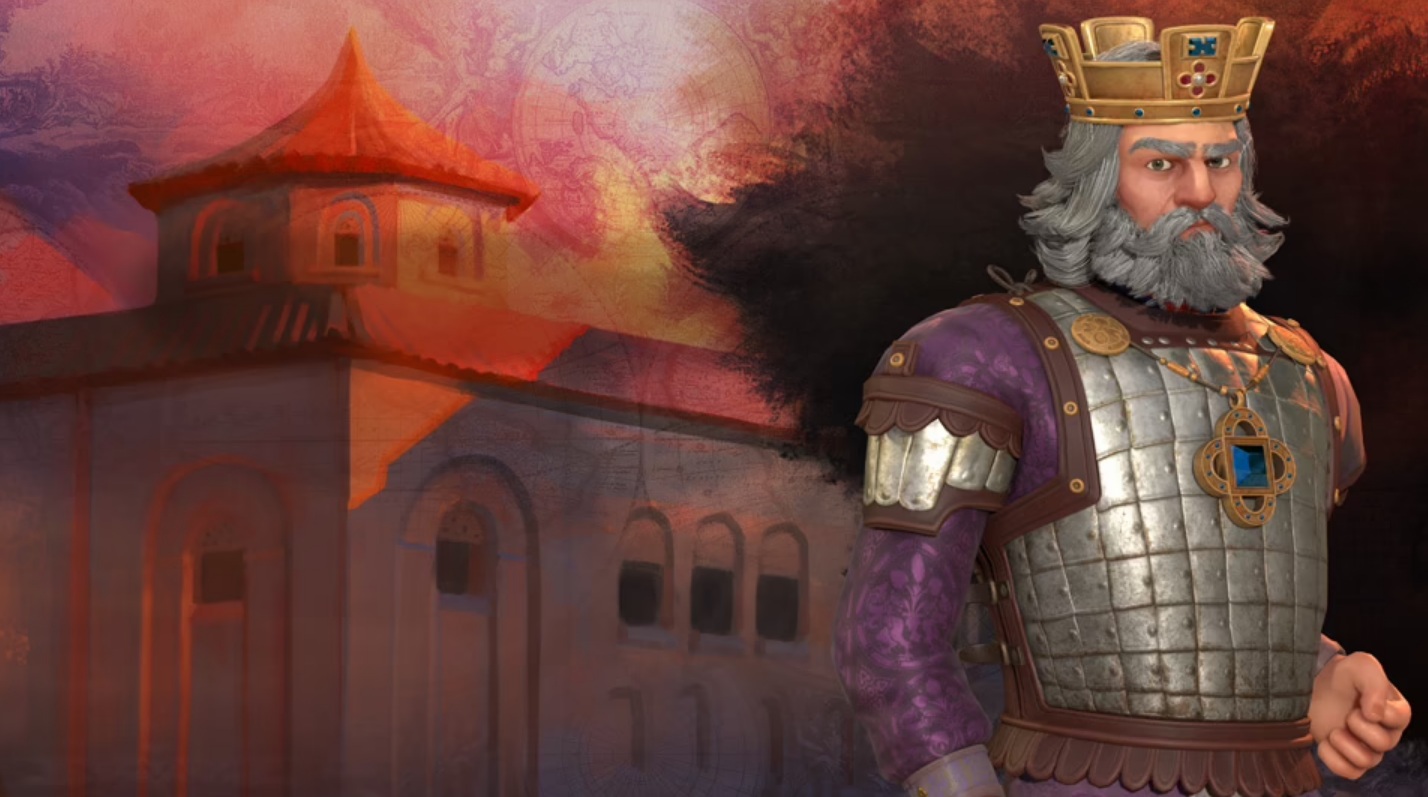The Byzantine emperor Basil II had an illustrious career. He ruled for almost 50 years, stood fast during a time of perpetual civil war, subjugated the First Bulgarian Empire and won a large number of military campaigns. And thanks to Dr. Andrew Alan Johnson, he briefly conquered history, replacing every single entry in Civilization 6's meaty Civilopedia.
Johnson is an associate professor at Stockholm University and a historical consultant. He's worked with Firaxis since Civilization 6—specifically the New Frontier Pass, which introduced Byzantium, along with Basil II.

Johnson is a cultural anthropologist working at Stockholm University as an associate professor in the department of social anthropology where he focuses on Southeast Asia. He also serves as an anthropological and historical consultant for popular media, particularly games. You can find out more about his work on his website.
"So I come to Firaxis, and they tell me, 'OK, so first couple of days, just play the game; get really familiar with the game.' And that wasn't hard, because I was a fan long before I was an employee there," Johnson tells me. "And then let's write some entries."
Johnson has been responsible for everything from achievement names to helping the art team get the outfits for historical leaders just right, but he also wrote a lot of entries for Civ's mammoth compendium of knowledge—the aforementioned Civilopedia.
"I think they were entries for people like Bà Triệu, for Basil, the New Frontiers Pass civilisations, leaders and wonders," he recalls. "And then here we upload it onto the database. And I just uploaded it over every other file. The entire folder just went, and I looked, and it was just my one little entry on Basil II. That's it. That's the Civilopedia. Archer? Basil. Egypt? Basil."

After turning the Civilopedia into a monument to Basil II's achievements, he thought his time at Firaxis had come to an end. "It was a good week that I had in game dev. I'm going to go and, I don't know, maybe be a nomad or something like that, raise sheep in Montana."
Luckily, being a shepherd was not on the cards. "There are measures that a company like Firaxis has to prevent this, so going to IT, saying my mea culpa, they were able to rescue it [by] rolling it back to the previous version. But that was my first real experience getting into game design."
While it might have felt like a harrowing trial by fire at the time, the experience emphasises how different it is to work on a team project when compared to Johnson's other life, in academia, where everything falls on his own shoulders.
"Especially in my field, in anthropology, I am the data collection tool," he says. "I'm the person who writes the thing. And when I send something out, it is all me that is in there. And so if I screw something up conceptually, or if I lose my field notes—there's stories of anthropologists who have lost all their field notes in some disaster, and a friend of mine had all his field notes taken by the police—if you lose something like that, that's on you. You have to rewrite the entire thing."

Clearly Firaxis was prepared for these kinds of mistakes, and the studio continued to work with Johnson, who also wrote the Civilization 7 Civilopedia among other things. Chatting to him, it's just really fascinating to hear how he approached it, echoing what he told us earlier in the year, where he said he wanted Civ 7 to be a "gateway drug" into history.
The Civilopedia is a platform where Johnson can educate, can share his passion for history and anthropology, and use his expertise to enlighten gamers. "I don't need to explain what archery is, so this gives me the opportunity to take a page, or take a few paragraphs and tell the story and talk about how, actually, archery radically predates anything in Civ.
"You can make bows out of horn. You can make bows out of wood. You've gotta think about tensile strength. You've gotta think about power versus mobility. So a longbow is good because of the grain of the wood and a particular kind of a tree. You can get better power in a smaller space if you mix materials and glue things together with bone and wood and then use that on top of a horse. But if you go to a warm, wet climate, as the Mongols found out, all those bows are going to break."
So Johnson was able to tell you all about technology that "you think you know already" and then reveal how "accidents, unexpected consequences or unseen factors, like material, play into the way history plays out".
While I went into our conversation looking to hear more about how Johnson deleted the Civilopedia, we ended up having a wide-ranging chat about AI, history, academia and how it intersects with game development, so keep an eye out for more articles from this interview over the next few days.






